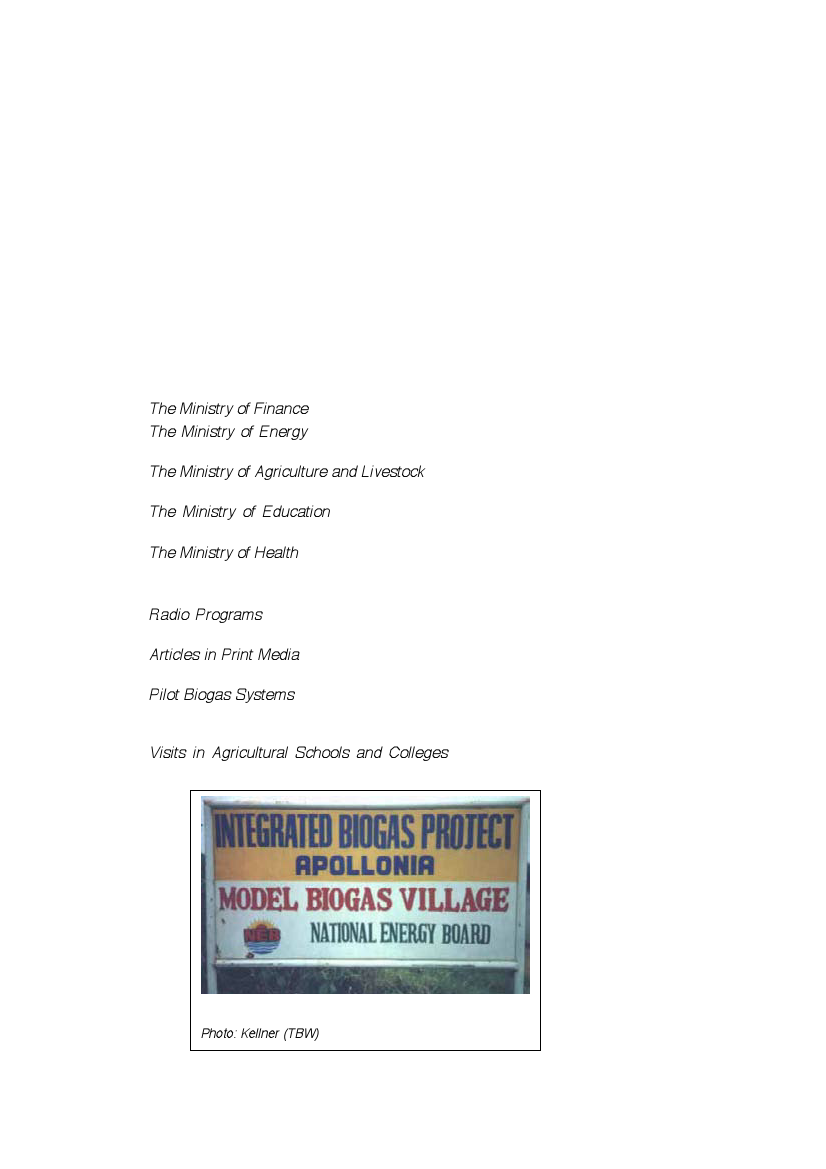
Political and Administrative Frame Conditions for Biogas
Programmes
Political will and public opinion
The development of biogas technology depends on the political will of donor and recipient
governments. It is the task of the governmental and administrative authorities to provide
access to the technology and to secure and organize the requisite material, financial and
legal basis. According to their political will to promote biogas, governments can play a more
or less supportive role in biogas research, information dissemination and regulations for
funding, subsidies or tax waving. The formation of a political will does not evolve in a
vacuum. Political will and public opinion develop in interrelation. Successful practical
examples, encouraging research findings, the use of media to spread information, all these
are tools to influence both political will and public opinion.
Biogas programs should attempt to lobby for biogas at various entry points of the
government system simultaneously. Creating a favorable climate for biogas dissemination
depends almost always on a whole range of decision makers. For example:
• The Ministry of Finance will decide on subsidies and tax wavers for biogas users.
• The Ministry of Energy can propose laws regarding the feeding of biogas-produced
electricity into the grid. It can also propose financial and other assistance.
• The Ministry of Agriculture and Livestock can include biogas in the training curriculum
of extension officers and agricultural colleges.
• The Ministry of Education can include biogas in the curricula of high schools and
promote the construction of bio-latrines for schools.
• The Ministry of Health can include biogas in the curricula of public health workers and
encourage the building of bio-latrines for hospitals.
Simultaneously to political lobbying, PR work is important to influence public opinion:
• Radio Programs are an effective means in rural areas to familiarize the population
with basics of biogas technology.
• Articles in Print Media usually reach members of the middle class, among whom are
the most promising potential users: middle to large farmers.
• Pilot Biogas Systems must be located strategically to be easily accessible. The more
these pilot plants have a ’real life character’, i.e. be an operational part of a farm, the
more convincing they will be for other farmers.
• Visits in Agricultural Schools and Colleges does not reach the decision makers of
today, but lays the ground for biogas acceptance in the future.
Figure 17: Sign of the National Biogas
Department/National Energy Board in Ghana
Photo: Kellner (TBW)
41